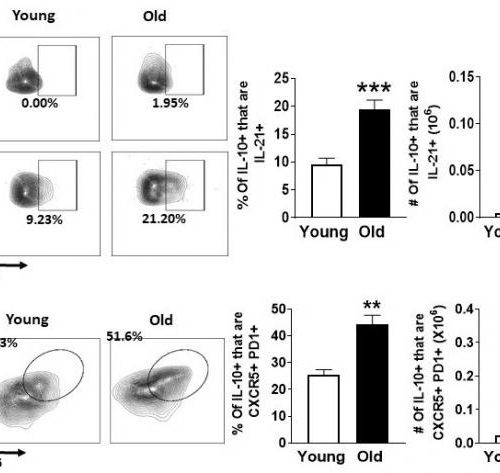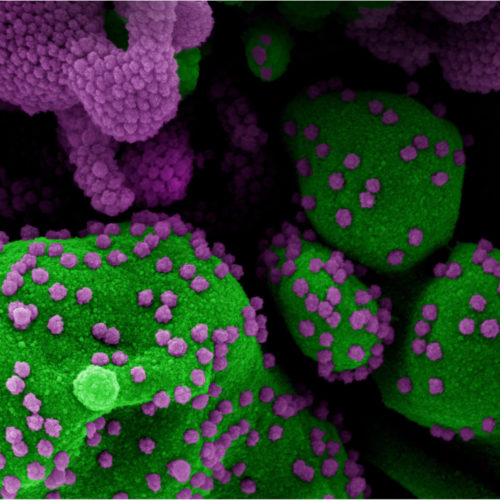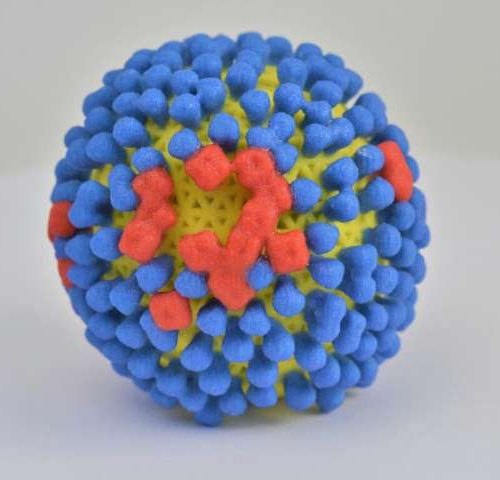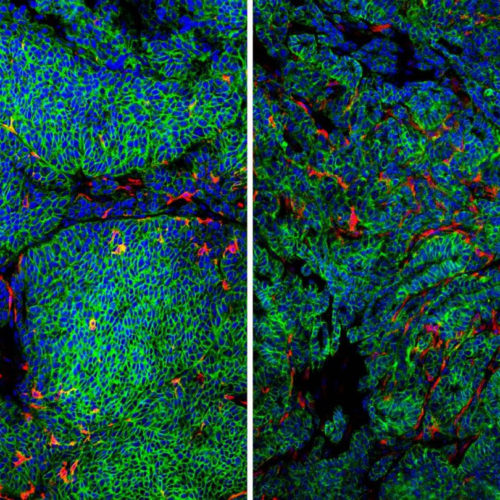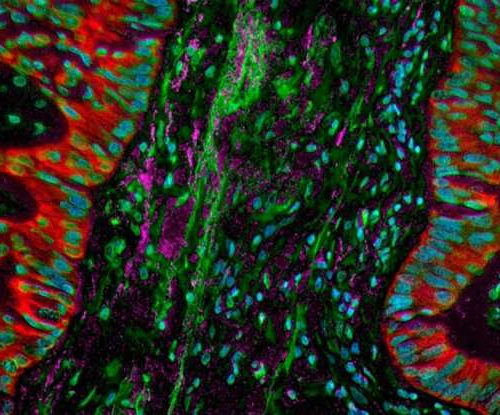by George Washington University Genetic modifier HDAC6 was found to control tumor growth and halt metastasis in triple-negative breast cancer in vivo, according to a new study published in the top-tier journal Cancer Research by investigators at the George Washington University (GW) Cancer Center. Immunotherapy—the use of drugs to stimulate one’s own immune system to...
Tag: <span>immune response .</span>
Slowing down a ‘helper’ cell may someday make vaccines more effective for seniors
A surprising new concept for boosting the power of flu vaccines might also boost future COVID-19 vaccines CINCINNATI CHILDREN’S HOSPITAL MEDICAL CENTER UNDESIRED EXCESSIVE INTERLEUKIN-10 (IL-10) PRODUCTION IN AGED MICE COMES PRIMARILY FROM TFH CELLS, ACCORDING TO NEW FINDINGS PUBLISHED IN SCIENCE ADVANCES. THIS CHART SHOWS THAT WHEN THESE CELLS ARE STIMULATED… view more CREDIT:...
COVID-19 research: Anti-viral strategy with double effect
Frankfurt scientists identify possible Achilles’ heel of SARS-CoV-2 virus GOETHE UNIVERSITY FRANKFURT In the case of an infection, the SARS-CoV-2 virus must overcome various defense mechanisms of the human body, including its non-specific or innate immune defense. During this process, infected body cells release messenger substances known as type 1 interferons. These attract natural killer...
Driving immunometabolism to control lung infection
TRINITY COLLEGE DUBLIN When drugs to kill microbes are ineffective, host-directed therapy uses the body’s own immune system to deal with the infection. This approach is being tested in patients with COVID-19, and now a team of researchers at Trinity College Dublin has published a study showing how it might also work in the fight...
How neurons reshape inside body fat to boost its calorie-burning capacity
By Dr. Tomislav Meštrović, MD, Ph.D. A new study published on the preprint server medRxiv* by a research group from the U.S. and Germany indicates that a novel BNT162b1 RNA-based vaccine against coronavirus disease (COVID-19) induces functional and proinflammatory T cell responses in almost all participants – marking another landmark achievement for this promising vaccine...
Fast-spreading mutation helps common flu subtype escape immune response
by Johns Hopkins University Bloomberg School of Public Health Strains of a common subtype of influenza virus, H3N2, have almost universally acquired a mutation that effectively blocks antibodies from binding to a key viral protein, according to a study from researchers at Johns Hopkins Bloomberg School of Public Health. The results have implications for flu...
How breast cancer cells sneak past local immune defenses
COLD SPRING HARBOR LABORATORY PHOTOMICROGRAPHS OF MOUSE TUMORS EXPRESSING A FACTOR THAT SUPPRESSES A LOCAL IMMUNE RESPONSE (LEFT) AND ONE THAT PERMITS THAT IMMUNE RESPONSE (RIGHT). RESEARCHERS DISCOVERED THAT CANCER CELLS EXPRESSING THE PROTEIN… view more CREDIT: XUE-YAN HE, EGEBLAD LAB, CSHL. Cold Spring Harbor Laboratory (CSHL) Associate Professor Mikala Egeblad and her colleagues describe...
Five things you need to know about: mRNA vaccines
The race for a vaccine against the novel coronavirus, or SARS-CoV-2, is on, with 54 different vaccines under development, two of which are already being tested in humans, according to the World Health Organization. And among the different candidates is a new player on the scene – mRNA vaccines. One mRNA vaccine developed by US...
Lung cancer proteome builds on genetic findings to reveal therapeutic strategies
by Tom Ulrich, Broad Institute of MIT and Harvard Lung cancer is the most commonly diagnosed cancer worldwide and the leading cause of cancer-related deaths, killing more per year than breast, colon, and prostate cancers combined. Over the years, studies of the lung cancer genome have fueled the development of drug therapies that target mutations...
UBC research shows hearing persists at end of life
Hearing is widely thought to be the last sense to go in the dying process. Now UBC researchers have evidence that some people may still be able to hear while in an unresponsive state at the end of their life. This research, published recently in Scientific Reports, is the first to investigate hearing in humans...


